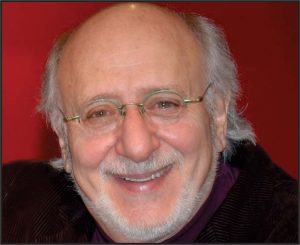Remembering a few of my favorite things is a guide through the turbulent times and a novel way to welcome Shabbat. Enjoy this version by Ofir Ben-Shitrit.
Shabbat Shalom
#BringThemHomeNow
Remembering a few of my favorite things is a guide through the turbulent times and a novel way to welcome Shabbat. Enjoy this version by Ofir Ben-Shitrit.
Shabbat Shalom
#BringThemHomeNow
The Shvesters bring their talents to ‘Eli, Eli’ Hannah Szenes’ poem written in 1942.
As we, too, struggle with the pain of war, we reach out in prayer, hoping for peace and an end to the suffering. May it come soon.
Shabbat Shalom
#BringThemHomeNow
The traveler’s prayer is shared as we embark on a journey hoping:
May it be Your will that You should lead us in peace and direct our steps in peace, and guide us in peace, and support us in peace, and cause us to reach our destination in life, joy, and peace.
This Shabbat lets pray that our journey might be so and that our destination itself is Peace.
Shabbat Shalom
Thanks to the gifted Marni Loffman.
Playing for Change brings musicians from around the world together to perform songs of unity, peace, and love. Amazing Grace is not usually on the Kabbalat Shabbat Playlist for most of us, but if you watch and listen, the singers in Jerusalem and the lyrics convey hope and faith, which is what we need as we enter Shabbat.
Shabbat Shalom
“Tamid Ohev Oti”- Always Loves Me is a very popular song, covered by groups here like Six13 to major performers in Israel. Yair Elitzur’s original version is here.
Its an uplifting song of hope, love, and faith. I’ve share the translation below, but enjoy the music as we welcome Shabbat.
Shabbat Shalom
 Peter Yarrow’s death has us saying goodbye, but his legacy is complicated. We’ve been engaged in the conversation regarding him and his song, Light One Candle, which is the Hanukkah song embraced by many Jews as a profoundly emotional iconic expression of our tradition. At about the same time that Yarrow entered hospice, many learned that he was accused of sexual misconduct. This reignited a debate about how we might separate the artist from his creation. Can his extraordinary music and activism be decoupled from his egregious behavior, or must we sacrifice his beautiful music because of his actions?
Peter Yarrow’s death has us saying goodbye, but his legacy is complicated. We’ve been engaged in the conversation regarding him and his song, Light One Candle, which is the Hanukkah song embraced by many Jews as a profoundly emotional iconic expression of our tradition. At about the same time that Yarrow entered hospice, many learned that he was accused of sexual misconduct. This reignited a debate about how we might separate the artist from his creation. Can his extraordinary music and activism be decoupled from his egregious behavior, or must we sacrifice his beautiful music because of his actions?
We’ve had this difficult conversation before, and many people have weighed the pros and cons of Yarrow, Carlebach, and others who have disappointed us as human beings yet created extraordinary artistic works.
I do not have an answer to the question. Do we stop singing Yarrow’s music? It’s more than just the songs he’s written, but also the songs he’s performed, most notably as part of the famous trio Peter, Paul, and Mary. It’s a thorny question that must be addressed, but I don’t think a blanket statement suffices; that is the easy way out. Instead, each of us needs to take responsibility for considering whether or not we are comfortable and where we may draw lines that we are unwilling to cross. Perhaps it’s with some footnote when we sing a song, or maybe it’s part of a community decision about whether the music is acceptable. But the conversation needs to occur. We must confront the ugliness and beauty and figure out how to weave them in a way that might work for us and the people we serve.
So, I’m not prepared to cancel him, but I must talk about him entirely. I am unwilling to discard all of the music he brought into our lives, yet that music cannot be heard without the more discomforting voice of his actions and the ethical dilemmas they present.
It’s messy and complicated, but we must consider, deliberate, and decide for ourselves and our respective communities how best to proceed.
Playing for Change unites artists worldwide with messages of peace, love, and unity. This medley takes us from Hawaii to Jerusalem and places in between and is an unique way to welcome Shabbat. I hope you enjoy it,
Shabbat Shalom.
Chanukah is almost here! Let’s start now with Watch Me by Six13.
A time for rededication to who we are shining light into the darkness.
Chag Urim Sameach
Shabbat Shalom
Prayer is universal. It transcends language, culture, and creed, uniting us in our deepest hopes and aspirations. This rendition of The Prayer blends its original message with the Hebrew translation by Rabbi Moshe Pomerantz z”l (1935-2024).
This Shabbat I share the beauty of The Prayer from Park Avenue Synagogue and Cantor Azi Schwartz.
Wishing you Shabbat Shalom.
May the hostages come home!
Naomi Shemer is the poet who created Al Kol Eleh, All These Things, a bittersweet and timely song. As Yonina shares her music, let us continue to pray for the hostages to come home and for peace.